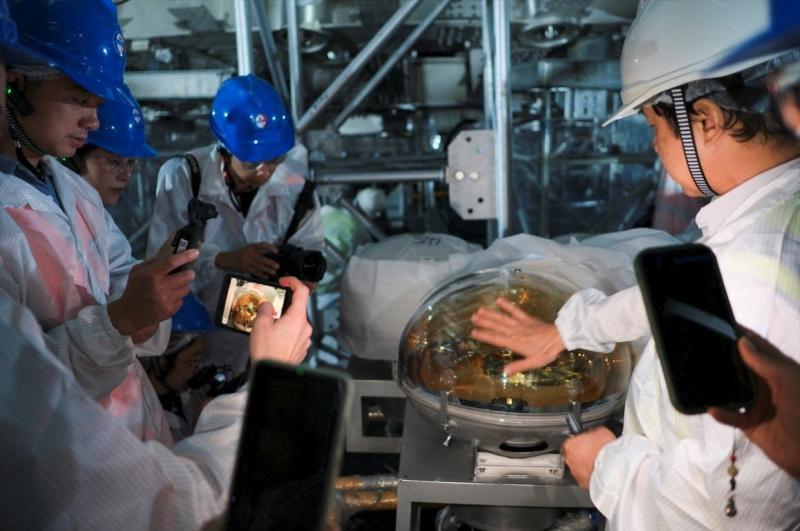
- galaxy
- 16 Oct 2024 07:27 AM
- JUNO, scientific collaboration, neutrino research
The Jiangmen Underground Neutrino Observatory (JUNO) in Guangdong, China, is poised to transform the study of neutrinos, subatomic particles produced by nuclear reactions. Set to begin operations in 2025, this $300 million facility features a giant spherical detector located 700 meters underground, surrounded by a 12-storey cylindrical pool of water. This innovative setup is designed to capture and analyze neutrinos emitted from nearby nuclear power plants, as well as those from the sun and the Earth’s natural radioactivity.
Neutrinos are unique in that trillions of them pass through matter, including human bodies, every second. Understanding their properties, such as mass hierarchy, could unlock significant insights into the universe's early days and the fundamental nature of matter itself. The JUNO project, which will collect data for up to six years, is expected to yield findings ahead of competing projects like the Deep Underground Neutrino Experiment (DUNE) in the U.S., which is facing delays and budget issues.
Despite geopolitical tensions between the U.S. and China affecting scientific collaborations, JUNO has attracted international participation from institutions in countries like France, Germany, Italy, and Russia. The facility's data transmission capabilities will ensure collaborative analysis, enhancing the integrity and reliability of the findings.
While real-world applications of neutrino research remain speculative, scientists are hopeful that continued advancements could pave the way for innovative technologies. As the JUNO team moves forward, they are determined to focus on scientific progress amidst the complex political landscape.





































